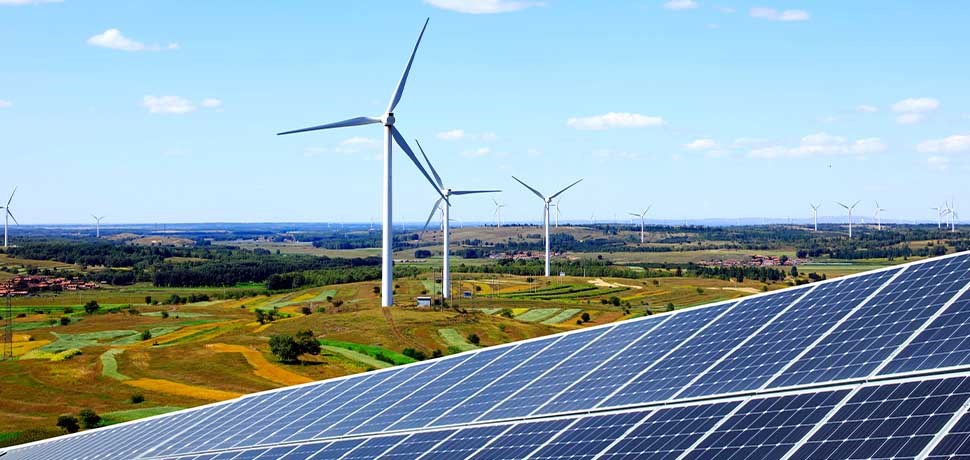Renewable energy for South Africa – Mohil Bandulal weighs in
Can SA achieve energy independence by utilising a blended approach between both fossil fuels and renewable energy sources? Our expert Mohil Bandulal weighs in.

Renewable energy for South Africa – Expert Mohil Bandulal weighs in
South Africa could achieve energy independence by utilising a blended approach between both fossil fuels and renewable energy sources. In favour of the benefits it offers, South Africans should consider the socio-economic impact of the over-zealous implementation of renewable energy on a developing country such as ours.
The issue of alternative energy is a contentious and frequently emotional one, of which I too share my personal experience with it. One cannot deny its benefit in the interests of a cleaner environment and in lowering global warming.
Assessing the impact of the 2022 Russian invasion of Ukraine
The recent invasion of Ukraine by Russia has brought energy issues to the fore, particularly in Europe where we have seen a significant build-up of green energy projects over the last decade, which together with gas, coal and nuclear, provided the energy needs of many of the developed economies in Europe.
Nevertheless, the events in Ukraine and the ensuing constrained gas supplies from Russia into Western Europe are a harsh reminder of the necessity to retain energy independence. The western world has over the last 200 years enjoyed enormous benefits from the utilisation of fossil fuels, which have helped propel the growth of their economies.
Where do poor nations stand in relation to wealthy countries that have benefited from affordable fossil fuels for the previous 150 years and have been major contributors to climate change? Should emerging nations be held to the same implementation criteria as developed nations, or should they be given more time to implement? Can rising or developing economies afford to utilise renewable energy on a large scale?
Renewable energy challenges for developing countries
There are several challenges developing countries will likely experience in implementing renewable energy. There is a significant capital cost of procuring and installing clean energy projects relative to existing conventional sources of energy. There is also a lack of large-scale human resources to build, maintain and operate large-scale clean energy projects. We must also note that there are compressive government policies pertaining to the development, implementation, quantum, and future of clean energy within a framework of economic growth.
The South African Energy Crisis
In the context of South Africa, the country still has some way to go. South Africa has been experiencing its energy crisis for more than a decade with the national energy supplier, Eskom, unable to meet the demand for a variety of reasons. To address South Africans' energy problems, the government has lately established a favourable environment for private producers to sell into the national grid.
Considering this the country may not at this point where it can afford the cost of implementing renewable energy as the primary source of energy generation, more so given the host of significant challenges including the need to fund education, security, healthcare and policing amongst others.
Additionally, wholesale implementation of renewable energy as the only source of our energy requirements will no doubt result in the decommissioning of Eskom power production units which are largely coal-based.
What happens to the employees of Eskom? How many of them can be retrained and absorbed into clean energy projects? Can we afford to direct significant capital to clean energy when our country has so many challenges including unemployment?
Perhaps adopting a blended approach of allowing private capital to build up South Africa’s renewable energy generation capacity alongside the national power producer may work, but asks, how would government control the pricing of electricity for it to balance the demands of an acceptable return on capital to the clean energy private producers relative to the need to provide low-cost electricity to its populace and industry to grow the economy.
Renewable Independent Power Producer Programme
The recent announcement by President Ramaphosa to enlist the private sector to urgently add much, much more capacity to the grid suggests that South Africa is looking towards private capital to implement additional generation capacity inclusive of renewable energy projects.
This will no doubt, once implemented help alleviate SA’s energy challenges in addition to minimising the need for government to allocate capital to build clean energy projects. It strikes me that South Africa will need to consider an approach that meets our specific requirements. One that provides an enabling environment for clean energy producers while maintaining their existing reliance on fossil fuels to meet short and medium-term demands for base electricity and peaking capacity in a cost-effective manner.